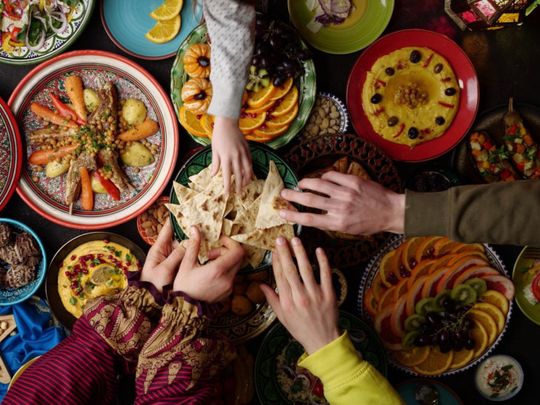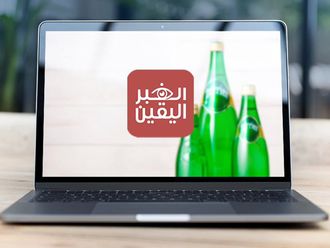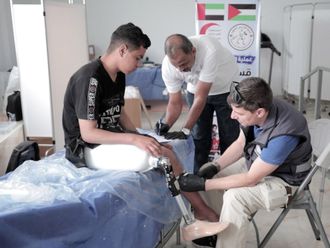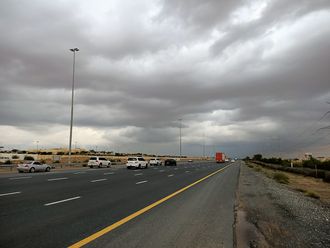
Dubai: Doctors in the UAE have cautioned the public against overeating during Eid, after a month-long fasting regimen.
Janani Satchithanantham, Specialist Dietetics, Aster Hospital, Al Qusais, said, “When Ramadan ends and Eid feasting begins, there are some common mistakes that people make."
She said, "They include overeating or indulging excessively in food after a month-long fast, which can lead to discomfort, bloating, and other digestive issues; ignoring nutritional balance by focusing solely on indulgent, high-calorie foods; and wastefulness as there could be excessive food during Eid celebrations due to bigger preparations or improper storage of leftovers.”
Dr. Abeer Alsaidi, Specialist Gastroenterology, Thumbay University Hospital, said, “Overindulging is a serious concern during the festival celebrations for many individuals.”
She said, “While consuming sweets, candy, soda and coffee may be tempting, doing so may have unfavourable effects on the digestive tract. This is because our digestive system becomes used to going for extended periods of time without food after 30 days of fasting. Overeating can throw off this naturally occurring rhythm and cause a number of problems, including bloating, dyspepsia, heartburn and stomach pain. After a protracted time of fasting, the digestive system finds it difficult to handle the rapid flood of food, which causes discomfort. As a result, it’s essential to progressively resume regular meals to prevent overstressing our digestive systems after the Ramadan fast.”
According to Dr Alsaidi, three crucial methods can help us prevent overeating. “In the first place, having a big glass of water before meals helps induce fullness, which lowers the chance of overeating. Secondly, by eating slowly, we give our bodies more time to signal fullness, which keeps us from overeating. And, lastly, eating more fibre-rich foods—like fruits and salads—will help us feel fuller.”
The doctor said, “For the first few days after Ramadan, it’s important to make dietary choices that support digestive health and overall well-being. This involves avoiding fast food, high-fat options, soda, and excessive coffee intake, which can lead to discomfort such as heartburn and bloating. Instead, opting for healthier alternatives like fruits and dates can satisfy cravings while providing essential nutrients and fibre.”
Satchithanantham also reiterated that it is important to achieve the right balance between different kinds of foods during Eid. “THis involves incorporating a variety of food groups to ensure adequate nutrition. Include plenty of fruits and vegetables for vitamins, minerals and fibre, lean proteins such as poultry, fish, or legumes for muscle repair and growth, whole grains for sustained energy, and healthy fats like nuts, seeds, and olive oil for heart health. Avoid excessive intake of processed foods, sugary snacks, and deep-fried items,” she advised.
Above all, she said, “Eid celebrations should focus on gratitude, community and reflection, not just on food. While enjoying delicious meals is a significant part of the festivities, it’s essential to prioritise health and mindful eating practices to fully enjoy the holiday season. Additionally, being mindful of those less fortunate and sharing meals or donating to charity can enhance the spirit of Eid.”
Dangers of overeating after month-long fasting
Blood sugar spikes: Overeating could cause a rapid increase in blood sugar levels, especially if the foods consumed are high in refined carbohydrates or sugars. This spike in blood sugar can contribute to insulin resistance and increase the risk of developing Type 2 diabetes over time.
Weight gain: Consuming excess calories after fasting can lead to weight gain, as the body stores the excess energy as fat. Over time, repeated episodes of overeating can contribute to obesity and related health issues.
Disrupted hormonal balance: Overeating can disrupt hormonal balance, including hormones that regulate appetite and metabolism. This imbalance can make it harder to control food intake and maintain a healthy weight.
Fast tips during feasting
Practise moderation: Enjoy Eid feasts in moderation, savoring the flavors without overindulging.
Balance your plate: Include a variety of foods, including fruits, vegetables, lean proteins, and whole grains, to ensure a balanced meal.
Stay hydrated: Drink plenty of water throughout the day to stay hydrated, especially if you’re consuming salty or high-calorie foods.
Listen to your body: Pay attention to your body’s hunger and fullness cues, stopping eating when you feel satisfied rather than stuffed.
Be mindful of portion sizes: Be mindful of portion sizes to avoid overeating, especially with calorie-dense foods.
Source: Janani Satchithanantham, Aster Hospital














